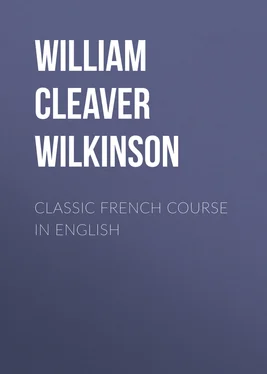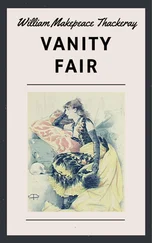William Cleaver Wilkinson - Classic French Course in English
Здесь есть возможность читать онлайн «William Cleaver Wilkinson - Classic French Course in English» — ознакомительный отрывок электронной книги совершенно бесплатно, а после прочтения отрывка купить полную версию. В некоторых случаях можно слушать аудио, скачать через торрент в формате fb2 и присутствует краткое содержание. Жанр: foreign_edu, foreign_language, Языкознание, на английском языке. Описание произведения, (предисловие) а так же отзывы посетителей доступны на портале библиотеки ЛибКат.
- Название:Classic French Course in English
- Автор:
- Жанр:
- Год:неизвестен
- ISBN:нет данных
- Рейтинг книги:3 / 5. Голосов: 1
-
Избранное:Добавить в избранное
- Отзывы:
-
Ваша оценка:
- 60
- 1
- 2
- 3
- 4
- 5
Classic French Course in English: краткое содержание, описание и аннотация
Предлагаем к чтению аннотацию, описание, краткое содержание или предисловие (зависит от того, что написал сам автор книги «Classic French Course in English»). Если вы не нашли необходимую информацию о книге — напишите в комментариях, мы постараемся отыскать её.
Classic French Course in English — читать онлайн ознакомительный отрывок
Ниже представлен текст книги, разбитый по страницам. Система сохранения места последней прочитанной страницы, позволяет с удобством читать онлайн бесплатно книгу «Classic French Course in English», без необходимости каждый раз заново искать на чём Вы остановились. Поставьте закладку, и сможете в любой момент перейти на страницу, на которой закончили чтение.
Интервал:
Закладка:
It was one of the congenial labors of Sidney Lanier—pure flame of genius that late burned itself out so swiftly among us!—to edit a reduction or abridgment of Froissart's Chronicles dedicated especially to the use of the young. "The Boy's Froissart," he called it. This book is enriched with a wise and genial appreciation of Froissart's quality by his American editor.
Whoever reads Froissart needs to remember that the old chronicler is too much enamoured of chivalry, and is too easily dazzled by splendor of rank, to be a rigidly just censor of faults committed by knights and nobles and kings. Froissart, in truth, seems to have been nearly destitute of the sentiment of humanity. War to him was chiefly a game and a spectacle.
Our presentation of Froissart must close with a single passage additional, a picturesque one, in which the chronicler describes the style of living witnessed by him at the court—we may not unfitly so apply a royal word—of the Count de Foix. The reader must understand, while he reads what we here show, that Froissart himself, in close connection, relates at full, in the language of an informant of his, how this magnificent Count de Foix had previously killed, with a knife at his throat, his own and his only son. "I was truly sorry," so, at the conclusion of the story, Froissart, with characteristic direction of his sympathy, says, "for the count his father, whom I found a magnificent, generous, and courteous lord, and also for the country that was discontented for want of an heir." Here is the promised passage; it occurs in the ninth chapter of the third volume:—
Count Gaston Phoebus de Foix, of whom I am now speaking, was at that time fifty-nine years old; and I must say, that although I have seen very many knights, kings, princes, and others, I have never seen any so handsome, either in the form of his limbs and shape, or in countenance, which was fair and ruddy, with gray and amorous eyes, that gave delight whenever he chose to express affection. He was so perfectly formed, one could not praise him too much. He loved earnestly the things he ought to love, and hated those which it was becoming him so to hate. He was a prudent knight, full of enterprise and wisdom. He had never any men of abandoned character with him, reigned prudently, and was constant in his devotions. There were regular nocturnals from the Psalter, prayers from the rituals to the Virgin, to the Holy Ghost, and from the burial service. He had every day distributed as alms, at his gate, five florins in small coin, to all comers. He was liberal and courteous in his gifts, and well knew how to take when it was proper, and to give back where he had confidence. He mightily loved dogs above all other animals, and during the summer and winter amused himself much with hunting....
When he quitted his chamber at midnight for supper, twelve servants bore each a lighted torch before him, which were placed near his table, and gave a brilliant light to the apartment. The hall was full of knights and squires, and there were plenty of tables laid out for any person who chose to sup. No one spoke to him at his table, unless he first began a conversation. He commonly ate heartily of poultry, but only the wings and thighs; for in the daytime, he neither ate nor drank much. He had great pleasure in hearing minstrels; as he himself was a proficient in the science, and made his secretaries sing songs, ballads, and roundelays. He remained at table about two hours, and was pleased when fanciful dishes were served up to him, which having seen, he immediately sent them to the tables of his knights and squires.
In short, every thing considered, though I had before been in several courts of kings, dukes, princes, counts, and noble ladies, I was never at one that pleased me more, nor was I ever more delighted with feats of arms, than at this of the Count de Foix. There were knights and squires to be seen in every chamber, hall, and court, going backwards and forwards, and conversing on arms and amours. Every thing honorable was there to be found. All intelligence from distant countries was there to be learnt, for the gallantry of the count had brought visitors from all parts of the world. It was there I was informed of the greater part of those events which had happened in Spain, Portugal, Arragon, Navarre, England, Scotland, and on the borders of Languedoc; for I saw, during my residence, knights and squires arrive from every nation. I therefore made inquiries from them, or from the count himself, who cheerfully conversed with me.
The foregoing is one of the most celebrated passages of description in Froissart. At the same time that it discloses the form and spirit of those vanished days, which will never come again to the world, it discloses likewise the character of the man, who must indeed have loved it all well, to have been able so well to describe it.
We take now a somewhat long forward step, in going, as we do, at once from Froissart to Rabelais. Comines, lying between, we must reluctantly pass, with thus barely mentioning his name.
III.
RABELAIS.
1495-1553
Rabelais is one of the most famous of writers. But he is at the same time incomparably the coarsest.
The real quality of such a writer, it is evidently out of the question to exhibit at all adequately here. But equally out of the question it is to omit Rabelais altogether from an account of French literature.
Of the life of François Rabelais the man, these few facts will be sufficient to know. In early youth he joined the monastic order of the Franciscans. That order hated letters; but Rabelais loved them. He, in fact, conceived a voracious ambition of knowledge. He became immensely learned. This fact, with what it implies of long labor patiently achieved, is enough to show that Rabelais was not without seriousness of character. But he was much more a merry-andrew than a pattern monk. He made interest enough with influential friends to get himself transferred from the Franciscans to the Benedictines, an order more favorable to studious pursuits. But neither among the Benedictines was this roistering spirit at ease. He left them irregularly, but managed to escape punishment for his irregularity. At last, after various vicissitudes of occupation, he settled down as curate of Meudon, where (the place, however, is doubtful, as also the date) in 1553 he died. He was past fifty years of age before he finished the work which has made him famous.
This work is "The Life of Gargantua and Pantagruel," a grotesque and nondescript production, founded, probably, on some prior romance or traditionary tale of giants. The narrative of Rabelais is a tissue of adventures shocking every idea of verisimilitude, and serving only as a vehicle for the strange humor of the writer. The work is replete with evidences of Rabelais's learning. It would be useless to attempt giving any abstract or analysis of a book which is simply a wild chaos of material jumbled together with little regard to logic, order, or method of whatever sort. We shall better represent its character by giving a few specimen extracts.
Rabelais begins his romance characteristically. According as you understand him here, you judge the spirit of the whole work. Either he now gives you a clew by which, amid the mazes of apparent sheer frivolity on his part, you may follow till you win your way to some veiled serious meaning that he had all the time, but never dared frankly to avow; or else he is playfully misleading you on a false scent, which, however long held to, will bring you out nowhere—in short, is quizzing you. Let the reader judge for himself. Here is the opening passage,—the "Author's Prologue," it is called in the English translation executed by Sir Thomas Urquhart and Motteux; a version, by the way, which, with whatever faults of too much freedom, is the work of minds and consciences singularly sympathetic with the genius of the original; the English student is perhaps hardly at all at disadvantage, in comparison with the French, for the full appreciation of Rabelais:—
Читать дальшеИнтервал:
Закладка:
Похожие книги на «Classic French Course in English»
Представляем Вашему вниманию похожие книги на «Classic French Course in English» списком для выбора. Мы отобрали схожую по названию и смыслу литературу в надежде предоставить читателям больше вариантов отыскать новые, интересные, ещё непрочитанные произведения.
Обсуждение, отзывы о книге «Classic French Course in English» и просто собственные мнения читателей. Оставьте ваши комментарии, напишите, что Вы думаете о произведении, его смысле или главных героях. Укажите что конкретно понравилось, а что нет, и почему Вы так считаете.












